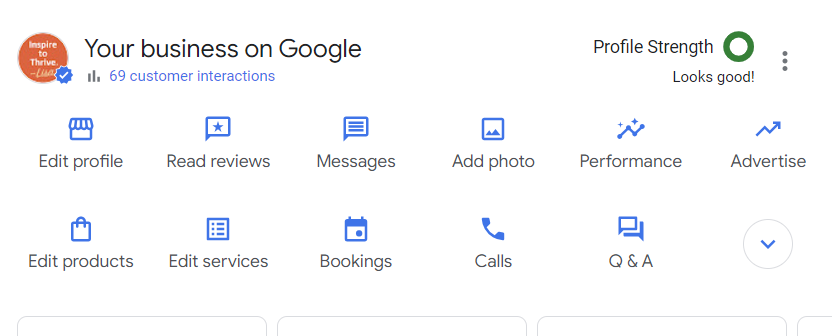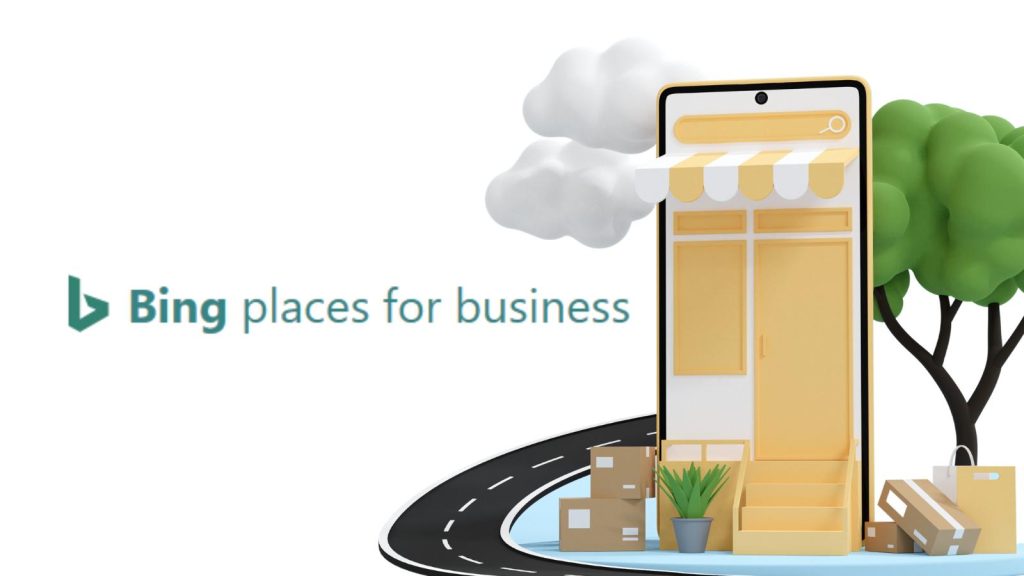Are you looking to increase your online visibility and attract more customers to your local business? Look no further than Bing Places. This guide shows you how to add and optimize your Bing Places listing and connect it with Google Business Profile to get more local customers.
Let’s unlock the potential of both search directory listings for your small business.
Table of Contents
Key Takeaways
- Bing Places is a free local business listing from Microsoft that helps your company appear in Bing search, Maps, and compatible voice assistants like Alexa.
- Adding and verifying a Bing Places listing with an accurate name, address, phone number, and website improves local visibility and builds trust with nearby customers.
- An optimized Bing Places profile utilizes clear categories, concise business descriptions, high-quality photos, accurate hours, and proactive review management.
- Using both Bing Places and Google Business Profile together expands your reach across the two most significant search engines, helping you capture more local traffic.
- Keeping business details, keywords, and updates consistent across Bing and Google strengthens local SEO and helps customers find the same information everywhere.
Get More Local Visits Easily with Bing Places
Bing Places is a powerful tool that can significantly enhance your local business and help you attract more customers. In this section, I will give you an overview of it and discuss the numerous benefits it offers to companies.
So, let’s discover how you can leverage this local platform to your advantage.
Bing Places Updates in 2025
Key upgrades include a single, easy-to-use dashboard, a smoother Google import tool, and a new Recommendation Tool that offers tips to boost your listing visibility, such as adding photos, menus, or details about your bingo places.
Bing is also automatically moving current users and their data to the updated platform.
Overview of Bing Places for Local Businesses
Bing Places is a free business listing platform provided by Microsoft’s search engine. It allows businesses to create detailed profiles that appear in local search results when potential customers are looking for products or services in their area.
It also works with voice search like Alexa.
By claiming and optimizing your Bing Places listing, you ensure that your business information is accurate and up-to-date, making it easier for potential customers to find you locally.
This platform is handy for small and local businesses that rely on local customers for their success.
How Bing Places Helps With Voice Search
Bing Places helps your small business show up in voice search results by giving voice assistants clean, structured data to read and trust. When you claim and optimize your Bing Places listing, you feed Microsoft services with your correct name, address, phone number, hours, and categories.
That data powers answers in Cortana, Bing mobile search, Windows devices, and many auto systems that use Bing. If your profile is complete, consistent, and rich with local keywords, Bing is more likely to match your business to spoken searches like “coffee shop near me” or “tax preparer open now.”
Reviews, photos, and accurate attributes also provide voice assistants with stronger signals, allowing them to pick your listing over a competitor with weak or outdated information. For a small business, that means more calls, store visits, and bookings from people who never touch a keyboard.
Benefits of Bing Places
- Increased Local Presence: Adding your business to Bing Places business listing increases the chances of your business appearing in Bing’s search results, expanding your online visibility beyond just Google. This means more potential customers can find you, leading to increased website traffic and potential sales.
- Improved Local Search Rankings: Bing focuses on local search queries, making it an ideal platform for businesses targeting specific geographic areas. When users search for local companies on Bing, having an optimized Bing listing can significantly improve your chances of appearing at the top of the search results.
- Enhanced Business Credibility: A well-optimized listing enhances your business’s credibility. It provides essential information such as your address, contact details, website link, and customer reviews, giving potential customers the confidence to choose your business over competitors.
- Integration with Other Microsoft Services: Bing integrates seamlessly with other Microsoft services, such as Cortana, Windows Maps, and Outlook. This synergy ensures that your business information is consistently displayed across different platforms, maximizing your reach and accessibility.
- Insights and Analytics: They provide valuable insights and analytics about your listing’s performance. You can track how many people have viewed and clicked on your listing, allowing you to make data-driven decisions to optimize your online visibility and attract more customers.
- Quick and Easy Setup: Setting up a listing is straightforward and user-friendly. The platform guides you through the process step by step, ensuring you don’t miss any crucial information. You can create a comprehensive listing in just a few minutes and start reaping the benefits. There is also a Bing Places help area for you if you need it.
You can maximize your online presence and reach a wider audience by utilizing Bing in combination with Google.
How to Add Your Business to Bing Places
Are you looking to expand your local reach and a wider audience? Adding your business to places is a great way to increase your visibility and attract more customers.
Creating A Bing Account
To get started, you’ll need to create an account. Follow these steps to set up your account:
- Visit the Bing Places website (www.bingplaces.com) and click the “Get Started” button.
- Sign in with your Microsoft account, or create a new one if you don’t have an existing account.
- Once signed in, you’ll be prompted to enter your business information, including the name, address, phone number, and website URL.
- Fill out the required fields accurately and provide up-to-date contact information.
Verification Process
After creating your account, you’ll need to verify your business. This step is essential to ensure the accuracy and legitimacy of your listing. Here’s how to complete the verification process:
- You can choose the verification method that best suits you. Bing offers several options, including phone, email, or postcard verification.
- You’ll receive a verification code via phone call or SMS if you choose phone verification. Enter the code in the designated field to confirm your ownership.
- For email verification, check your inbox for a verification email from Bing Places. Click on the provided link to verify your business.
- If you opt for postcard verification, Bing will mail a postcard to your business address with a verification code. Once received, enter the code in your Bing Places account.
- You can also contact them via chat, as I recently did for my business. They took care of it over chat. It was quick and easy!
Adding Business Details
Now that your business is verified, it’s time to add the necessary details to your Bing Places for Business listing. Follow these tips to ensure you provide accurate information that will attract potential customers:
- Include a detailed business description highlighting your unique selling points, products, or services.
- Add high-quality images that showcase your business and its offerings. Visual content can significantly impact a customer’s decision-making process.
- Provide your business hours, contact information, and website URL.
- If applicable, categorize your business into relevant industry-specific categories to improve search relevance.
Optimizing Your Bing Business Places Listing
To give your business the competitive edge it deserves, consider implementing these optimization techniques:
- Use targeted keywords in your business description and include relevant industry terms to improve the discoverability of your listing.
- Add links to your social media profiles and encourage customers to leave reviews and ratings for your business.
- Regularly update your listing with changes or promotions to keep it current and enticing to potential customers.
- Consider leveraging their advertising options, such as sponsored listings or enhanced business profiles, to increase your visibility and attract more customers.
Following these steps, you can successfully add your business to Bing and optimize your listing for maximum exposure.
Combining Bing with Google’s Business Profile
Regarding local search and directory listings, two of the most prominent platforms are Bing Places and Google’s Places (formerly Google My Business).
While they may have distinct differences, combining these two powerhouse platforms to maximize your online visibility and reach offers significant advantages.
In this section, I will explore the benefits of combining these top two business directories, examine their similarities and differences, and discuss best practices for managing multiple listings.

Combining your local business listing can expand your reach and attract a wider audience. They are the two most significant search engines, accounting for the majority of search traffic worldwide.
By leveraging both platforms, you increase your chances of being discovered by potential customers using either search engine.
Furthermore, each has its unique user base, with some individuals preferring one.
By having a presence on both platforms, you can cater to different user preferences and ensure your business is visible to a wide range of potential customers.
Similarities and Differences Between The Two Listings
While both serve a similar purpose of providing businesses with a platform to manage their online presence, there are notable differences in functionalities and reach.
Similarities:
- Both platforms allow businesses to create and manage their online listings.
- They offer options for displaying essential information, including contact details, hours of operation, and customer reviews.
- Both platforms offer tools for tracking and analyzing user engagement with your listings.
Differences:
- Bing partners with Yelp, which means that Yelp reviews are integrated into Bing’s search results. Google Places, on the other hand, has its own review system.
- Google’s Places has a wider global reach due to its dominance as a search engine, while Bing Places is more prevalent in certain regions.
- Bing allows businesses to upload videos directly to their listing, a feature not available on Google’s Places.
Best Practices for Managing Multiple Listings
Managing multiple listings on both requires some strategic planning and attention to detail. Here are some best practices to ensure effective management:
- Consistency is key: Ensure that your business information (name, address, phone number) is consistent across both platforms. Inconsistencies can confuse customers and hurt your local SEO efforts.
- Regularly update your listings: Keep your listings current with accurate information, including any changes to address, phone number, or operating hours. This helps maintain credibility and avoids frustrating potential customers.
- Optimize your content by incorporating relevant keywords and phrases into your business description, categories, and reviews to boost your visibility in search results. However, avoid keyword stuffing, as it can negatively impact your rankings.
- Monitor and respond to reviews: Actively engage with customers by responding to both positive and negative reviews and feedback. This demonstrates your commitment to customer satisfaction and builds trust with potential customers.
- Leverage additional features: Take advantage of the extra features offered by both platforms, such as posting updates, uploading photos and videos, and utilizing appointment booking tools. These features can enhance your online presence and differentiate your business from competitors.
Combine Them
Combining the power of Bing Places and Google’s Places allows you to broaden your online reach, attract a broader customer base, and effectively manage your multiple listings across both platforms.
Implementing these best practices will help you optimize your listings and stay ahead in the competitive digital landscape.
Conclusion: Listings on Bing Places and Google Business Profiles
Local listings on Google and Bing Places give your small business a real chance to stand beside bigger brands, right where customers are searching. When your name, address, and hours match across platforms, you build trust at a glance.
Keep your profiles updated, add photos, and respond to reviews, and you turn basic listings into a steady flow of local leads. Take 15 minutes today to review your profiles and fix one thing that could cost you a sale.
Your future customers are already searching, so make sure they find you first.
Frequently Asked Questions About Bing Places Business Listings
What is Bing Places, and why should my small business use it?
Bing Places is Microsoft’s free local business listing platform. It allows you to create a profile that displays your address, phone number, website, hours, photos, and reviews in Bing search results and Maps. Small and local businesses use it to reach people who search on Bing or use services tied to it, such as Windows devices and some voice tools. A comprehensive listing helps customers find you more quickly and builds trust because your information appears official and consistent.
How do I add my business to Bing Places?
To add your business, go to bingplaces.com and select “Get Started.” Sign in with a Microsoft account, then enter key details such as your business name, address, phone number, and website. After that, Bing asks you to verify ownership by phone, email, postcard, or support chat. Once verified, you can add a description, categories, photos, hours, and other details. Most small businesses can complete setup in a short time if they have their core information ready.
What are the most important ways to optimize a Bing Places listing?
The most important optimization steps are accuracy, completeness, and activity. Use an exact and consistent business name, address, and phone number that match those listed on your website and other directories. Select the most relevant categories and provide a concise description that clearly outlines your primary services and key terms. Add high-quality photos, correct hours, and links to your website and social profiles. Update your listing when things change and encourage happy customers to leave honest reviews so your profile looks active and trustworthy.
How does Bing Places compare with Google’s business listings?
Bing Places and Google’s business listings both show local businesses in search results, maps, and some partner products. Both let you manage basic details, photos, hours, and customer reviews, and both offer insights on views and clicks. The key differences are reach and features. Google has a larger global user base, while Bing has a strong presence in some regions and on Microsoft products. Bing also utilizes Yelp reviews and allows direct video uploads in some cases, whereas Google employs its own review system and various post and update tools. Using both gives you broader coverage.
Should I manage both Bing Places and Google Business Profile for my business?
Most local businesses benefit from managing both Bing Places and Google Business Profile. The two search engines handle most global search traffic together, so having listings on each increases your chances of being seen. When you maintain consistency in your name, address, phone number, categories, and branding across both, you enhance local SEO and prevent customer confusion. It takes a bit more time, but you gain more visibility, reach a broader range of users, and have a backup source of traffic if one platform changes.




